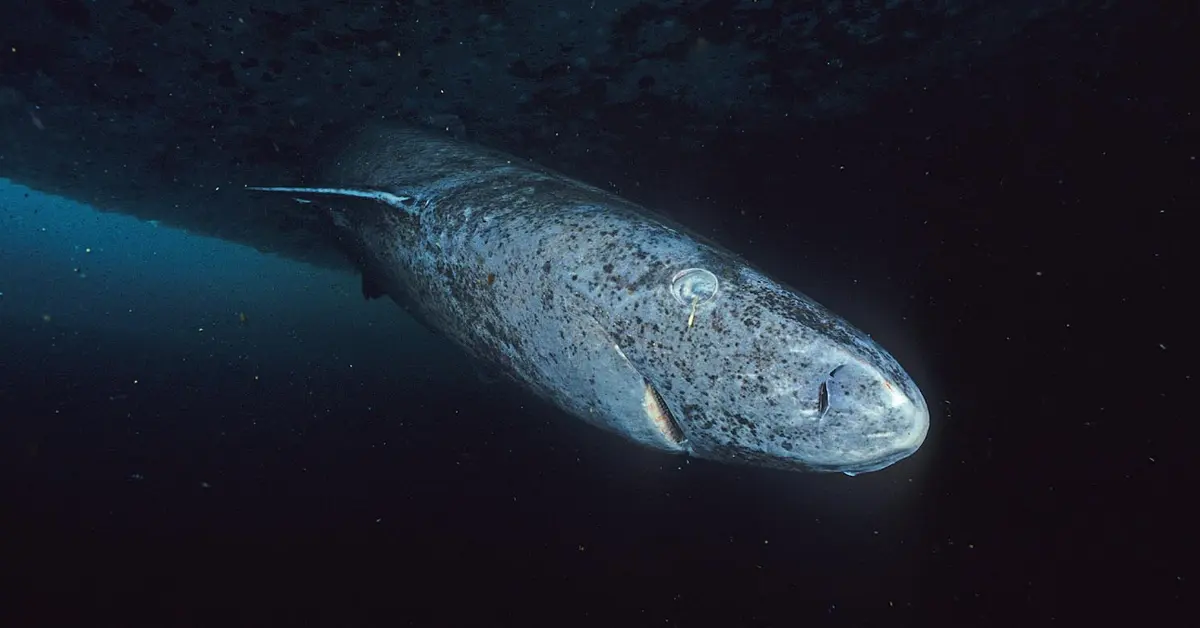In the azure waters of the Caribbean, where colorful coral reefs and tropical fish are the usual sights, an unexpected guest recently made a surprising appearance. The Greenland shark, known for its astonishingly long lifespan of 250 to 500 years, had found its way far from its frigid Arctic home, leaving scientists baffled and intrigued.
The encounter took place off the coast of Belize, a picturesque Central American country renowned for its stunning marine biodiversity. Devanshi Kasana, a biologist and Ph.D. candidate at Florida International University’s Predator Ecology and Conservation lab, was among the researchers who stumbled upon this astonishing discovery. Kasana recalls the moment vividly, describing it as, “We suddenly saw a very slow-moving, sluggish creature under the surface of the water,” as reported by Mashable.
The Greenland shark, also known as Somniosus microcephalus, is a remarkable creature in many ways. Not only does it possess one of the longest lifespans in the animal kingdom, but it also navigates the extreme cold and darkness of the Arctic with a grace and tenacity that has fascinated researchers for years. Yet, finding one of these enigmatic creatures in the warm, tropical waters of the Caribbean was nothing short of a scientific enigma.
To shed light on this astonishing event, scientists have turned to genetic analysis. A 2020 study revealed that there are two geographically separate populations of Greenland sharks. One group prefers the frigid waters near Canada’s Baffin Basin, located above the Arctic Circle. In contrast, the other population occupies the North Atlantic Ocean, stretching from Nova Scotia to Svalbard, a remote archipelago near Norway. The clear geographic separation between these two populations underscores the remarkable adaptability of the Greenland shark.
One of the most intriguing aspects of the Greenland shark is its delayed sexual maturity. According to a 2016 study, these remarkable creatures don’t reach sexual maturity until they are at least 134 years old. This extraordinary biological characteristic has left scientists astounded, as it defies conventional notions of reproductive timing in the animal kingdom.
So, how did one of these ancient Arctic sharks find its way to the Caribbean? The answer remains shrouded in mystery. The journey from the icy Arctic waters to the warm Caribbean seas is a vast and perilous one, involving navigating through various ocean currents, temperature gradients, and ecological zones. Researchers are left to ponder whether this lone traveler represents an anomaly or if there is a deeper and yet undiscovered connection between these distant realms of the world’s oceans.
The presence of a Greenland shark in the Caribbean serves as a poignant reminder of the interconnectedness of our planet’s ecosystems and the astonishing adaptability of nature. It prompts us to ask questions about the resilience and versatility of these ancient creatures in the face of changing environmental conditions.
As scientists continue to unravel the mysteries of the Arctic shark’s unexpected sojourn in the Caribbean, one thing is certain: the natural world never ceases to amaze us with its capacity to surprise and challenge our understanding. The Greenland shark’s journey serves as a testament to the ongoing exploration of our planet’s diverse and interconnected ecosystems, reminding us that there is much more to discover beneath the surface of our oceans.











